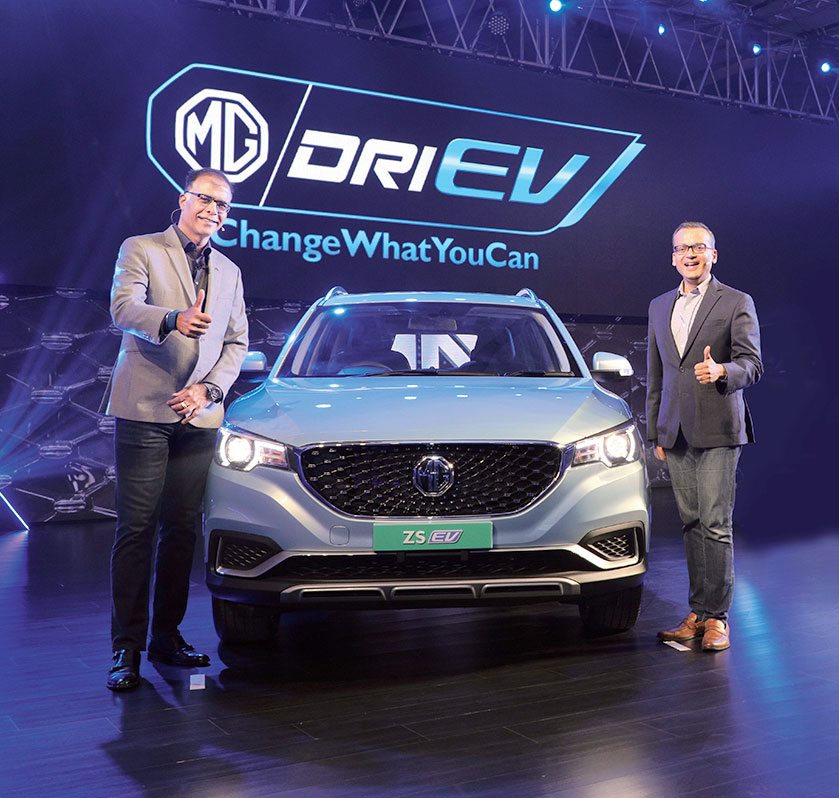Morris Garages (MG) Motor India is preparing to launch its first electric vehicle (EV) early next year along with charging infrastructure and battery solutions for its potential customers.
The vehicle will be initially available in five cities — Delhi, Mumbai, Bangalore, Hyderabad and Ahmedabad. “The MG ZS EV, a fully electric, internet SUV, will go on sale from January. Even as we speak, about 200 of them are being assembled at the Hallol plant,” Rajeev Chaba, president and managing director of MG Motor India, said while unveiling the car in New Delhi on Thursday.
On when the EV will be available in other cities, Chaba said: “We will evaluate the opportunities to expand to further cities based on customer response.”
The MG ZS EV will compete with the Hyundai Kona that is retailed at Rs 25.30 lakh. Hyundai has sold 231 units of the Kona since its launch in July this year. The MG ZS EV will be powered by a 44.5 kWh, liquid-cooled NMC (nickel manganese cobalt) battery from CATL, a China-based battery manufacturer that has a tie-up with SAIC Motor, the parent company of MG Motor India. It gives the car a travel range of 340 kilometres on full charge.
Chaba elaborated on the joint ventures the company has signed to provide the immediate infrastructure needed to run an electric car. MG has joined hands with Finland-based energy major Fortum to install its first public 50kW DC fast charging station in Gurgaon. There will be four fast charging stations in the Delhi-NCR area.
The company will install a 7.4kW AC charger powered by Delta Electronics at the homes and offices of customers.
The car maker is also setting up a DC super-fast charging network at select MG showrooms and plans to create an extended charging network across dealerships in select satellite cities along key routes. With the super-fast DC chargers (50 kW), the ZS EV will reach 80 per cent battery capacity within 50 minutes, while the chargers installed at homes will take around 6-8 hours for a full charge. Besides, it is also tying up with eCharge Bays to provide the charging infrastructure.











